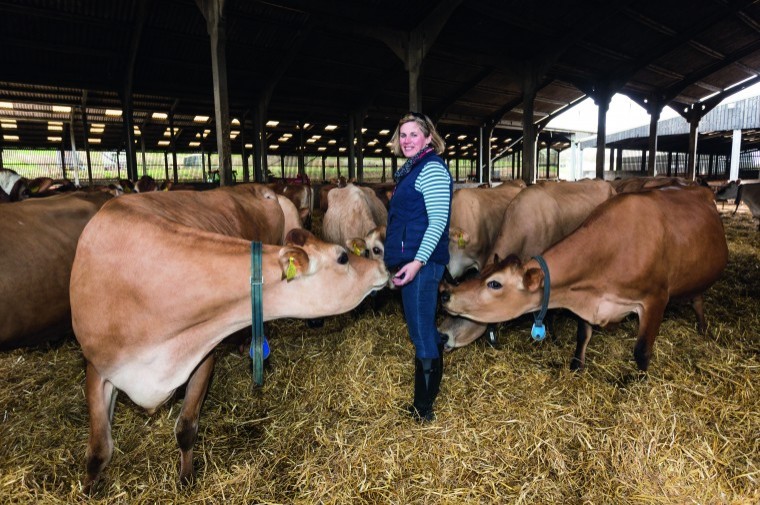Thank goodness we are now (hopefully) past the worst of the weather. Having been carting buckets of water during the recent snow spell, I can say I shall look forward to the lighter evenings and warmer weather that we hope will make an appearance soon. Hopefully by the time you read this the fertiliser will be on the grass and silaging will be on the distant radar. Life on the farm continues at great speed.
A hole in my wellies was proving to be a large issue recently and it would appear I picked the wrong time to buy wellies. The local store seems to have sold out and a search on the internet couldn’t find any. The supply comes from Europe and the issue appears to be that they are unable to import any at this time. The same applies to exporting hay and straw; the UK government say we need an animal health certificate and Europe says we need a plant health certificate.
Wrapped hay and straw appeared on the Brexit agreement but apparently DEFRA didn’t realise that the UK exported naked hay and straw. Until the governments can agree, we are facing the unfortunate scenario of being unable to export hay and straw. The ability to export hay and straw to the continent is imperative, especially in the south of England, where we rely heavily on this trade.
With many European dealers already securing their next year’s supply of hay and straw from Denmark, Sweden, Germany etc it seems incredibly difficult to see, without lightning action from the UK government to resolve this, that there will be a continued strong hay and straw trade next season at all. This will have a huge impact on the price of straw. We have all enjoyed fortuitous pricing this year due to the lack of yield, but when the tables are turned it may go from a lack of yield to a lack of customers.
Another lockdown birthday has been celebrated. Ted, aka “Chubby”, turned four. Where has the time gone? He starts full time school in September and we shall need all the strength we have to persuade him that school is an essential life skill and that Ashford market will still be there when he finishes. Loading and unloading calves is the highlight of the week.
I have just read an article published by the University of Reading on farmers and their mental health during the pandemic. It looked at the experiences and challenges that farmers face and how the charities are dealing with and providing support during these challenging times. They also studied how DEFRA and other government bodies can better target support for farmers and rural communities in times of crisis. Farming can be a rather lonely occupation at times and even more so when you come under financial pressure. Having someone to talk to and run ideas past can make the world of difference.
Working long hours, often in isolation in a stressful job, seems to affect four out of five farmers or farm workers, according to RABI. This past year, under pandemic conditions, seems to have had a huge impact on the mental health of farmers and workers alike. With some of the key social events cancelled (on-farm demos, ploughing matches, agricultural shows and the pub), it has highlighted the major part that these events form in a farmer’s calendar.
The effects are expected to have a time delay on many farmers and workers. Many charities now find themselves stretched to the limit and have been inundated with calls for help. Their helplines are open every day 7am till 11pm. These charities have also lost a huge part of their income due to not being able to fundraise.
There are, of course, many other charities that deserve a mention. When we are eventually allowed to socialise and interact with our fellow farming friends, please remember to support these charities that have done so much to help the industry through these torrid times.




